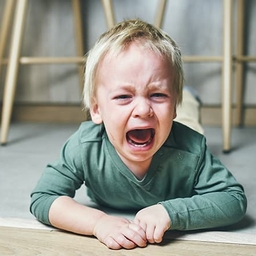Integrative Tools for Sleep: Yoga
The following resource from Children’s Hospital of Philadelphia (CHOP) provides information about practicing yoga to improve sleep.
Our Child and Adolescent Psychiatry and Behavioral Sciences experts have created this list of resources to help you keep your child safe and well.
The following resource from Children’s Hospital of Philadelphia (CHOP) provides information about practicing yoga to improve sleep.
La dieta antiinflamatoria (AI, por sus siglas en inglés) se basa en dos patrones tradicionales de alimentación saludable que proceden de las culturas asiática y mediterránea. Se cree que el patrón combinado es una de las formas más saludables de alimentación.

A CHOP behavioral health specialist shares ways to teach your child how to manage their anger, and when to seek additional support if needed.
This guide for parents of children and adolescents offers practical strategies and tools for management of chronic pain with the goal of kids fully participating in school, sports, social life and family life. By Tonya Palermo, PhD, and Emily Law, PhD.
This resource from Children’s Hospital of Philadelphia (CHOP) offers information about massage therapy and how they can be used as part of a treatment plan to support relaxation and healing.
This animated video for kids gives real-life examples of the mind-body connection: how stress and big feelings can sometimes result in physical symptoms such as headaches, nausea, dizziness and pain, even when tests and lab results cannot identify a cause.
This app from neurosymptoms.org helps with tracking symptoms of FND and supports communication with the user’s health care team.
Provides information about mental health and support resources for families, teens and young adults. It has affiliates in every state and in many local communities.
ADDA's mission is to help people with ADHD lead happier, more successful lives through education, research and public advocacy. It focuses especially on the needs of adults and young adults with ADHD.
An educational site for children and caregivers who are living with non-epileptic events (PNEE, pseudoseizure and others). The explanatory content is extensive, as are the downloadable symptom management tools.